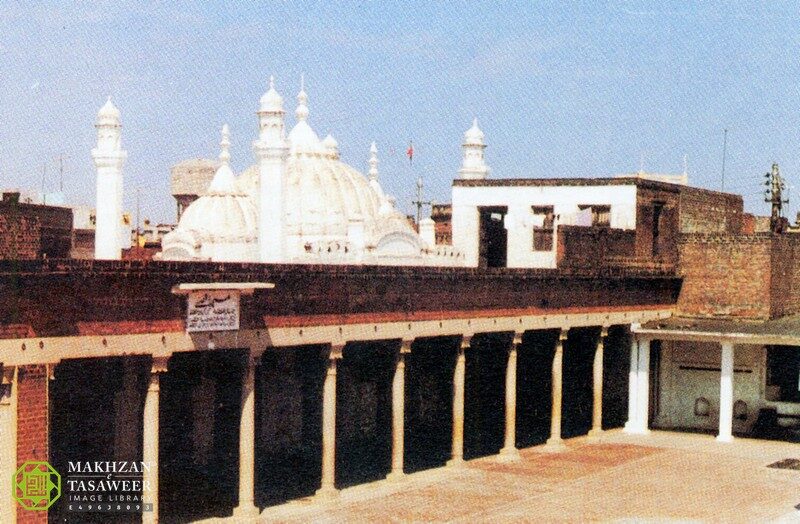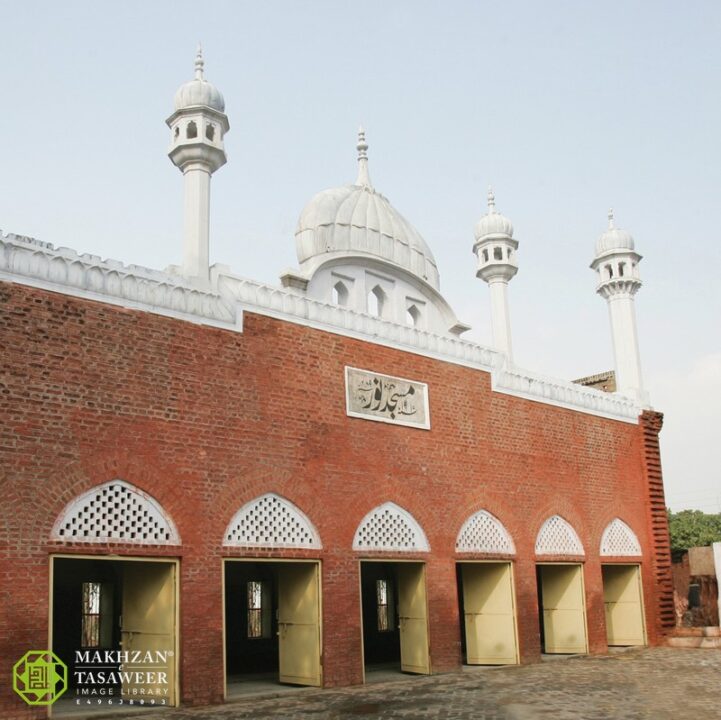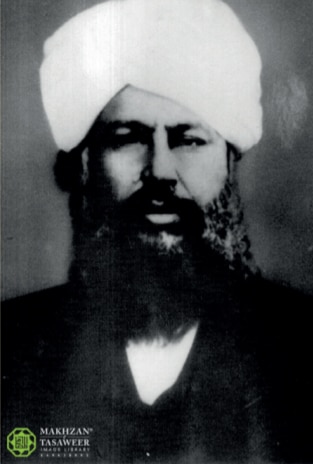
11 March 1910: Hazrat Khalifatul Masih Ira called for Jamaat members to volunteer and assist in the work for the extension of Masjid Aqsa, Qadian. Huzoorra took part in the labour work too by shifting mud during the construction. (Tarikh-e-Ahmadiyyat, Vol. 3, p. 314)
11 March 1966: The establishment of Majlis-e-Irshad was announced and its first meeting was held in Masjid Mubarak, Rabwah under the chairmanship of Hazrat Khalifatul Masih IIIrh. Majlis-e-Irshad was a forum started by Hazrat Khalifatul Masih IIIrh where Ahmadi Muslim scholars – both religious and secular – would deliver speeches on various topics in Masjid Mubarak. On this day, after Huzoor’sra inaugural speech, scholars of the Jamaat delivered lectures. Maulana Abul Ata Jalandhari Sahib, Syed Mir Mahmood Ahmad Nasir Sahib, Syed Dawood Ahmad Sahib, Maulana Ghulam Bari Saif Sahib, Qazi Muhammad Nazir Sahib, each, in response to the doctrine of the divinity of Jesus, presented an argument from the Promised Messiah’sas book Jang-e-Muqadas. (Tarikh-e-Ahmadiyyat, Vol. 23, p. 494)
12 March 1916: Hazrat Musleh-e-Maudra addressed missionaries after Zuhr prayer in Qadian. Huzoorra said the most important aspect of the success of a missionary was self-purification. Huzoorra said that an exemplary missionary should have the following traits: To inculcate the habit of tahajjud prayers, reading the Holy Quran, regular remembrance of God, setting up one’s own library, avoiding asking unnecessary questions, disliking false gratification and having extraordinary reliance on God Almighty.
Explaining the great need for piety for a missionary, Huzoorra mentioned eight important and easy ways to attain piety. These most valuable instructions were later published under Nasaih-e-Mubaligheen and can be read on page 287 of the third volume of Anwar-ul-Ulum.
12 March 1953: During the horrific anti-Ahmadiyya riots of 1953 in Pakistan, due to the forced closure of Al Fazl, a series of letters were issued to contact members of the Jamaat. In a letter dated 12 March, among other things, it was written that a Jamaat in Pakistan had informed that by the grace of Allah there was no panic in their area; however, they said that they were concerned about people living in the Markaz. Another Jamaat reported that mischief caused by opponents was increasing in their area every day. Upon this, Hazrat Musleh-e-Maudra said:
’’ان شرارتوں كو پكڑنے والا آسمان پر زندہ خدا موجود ہے۔‘’
“There is a living God in heaven who shall seize these mischievous people.” (Tarikh-e-Ahmadiyyat, Vol. 15, p. 221)
13 March 1914: Hazrat Mirza Bashiruddin Mahmud Ahmadra delivered a Friday Sermon and led the congregation in Jumuah prayer, which happened to be the final Friday in the blessed era of the Khilafat of Hazrat Khalifatul Masih Ira. On the instructions of Hazrat Khalifatul Masih Ira the young Sahibzada Mirza Mahmud Ahmad Sahibra was assigned to lead prayers during the final ailment of Hazrat Khalifatul Masih Ira. On the same day, Hazrat Khalifatul Masih Ira departed for his eternal Master at around noon, while he was offering his prayer. (Tarikh-e-Ahmadiyyat, Vol. 3, p. 511)
14 March 1914: After the sad demise of Hazrat Khalifatul Masih Ira, the election for Khilafat was held on this date after Asr prayer in Masjid Nur, Qadian. Hazrat Mirza Bashiruddin Mahmud Ahmadra was elected as the second Khalifa of the Promised Messiahas. Hazrat Khalifatul Masih IIra accepted bai‘at of the Ahmadi Muslims present and delivered a short speech. Huzoorra proceeded to the lawn of Talim-ul-Islam High School to lead the funeral prayer of Hazrat Khalifatul Masih Ira, which was attended by more than 2,000 people. On the same date, after 6 pm in the evening, the burial of Hazrat Maulvi Nuruddinra commenced in Bahishti Maqbarah Qadian beside the sacred tomb of the Promised Messiahas. (Tarikh-e-Ahmadiyyat, Vol. 3, p. 516)

14 March 1915: Hazrat Sufi Ghulam Muhammadra arrived at Colombo, Sri Lanka and during his three-month stay, he managed to establish a local chapter of the Jamaat.
Initially, he was sent to establish an Ahmadiyya mission in Mauritius. He left Qadian on 15 February and after completing his work in Sri Lanka he reached Port Louis, the port of Mauritius on 15 June. (Tarikh-e-Ahmadiyyat, Vol. 4, p. 170)

15 March 1919: Due to influenza pandemic, Jalsa Salana was not held on its due dates in December 1918. The three-day Jalsa Salana proceedings were held in Qadian on these dates. Hazrat Musleh-e-Maudra delivered his speech on Irfan-e-Ilahi (Recognition of the Divine) before an audience of 5,000 Ahmadis. (Tarikh-e-Ahmadiyyat, Vol. 4, p. 219)
15 March 1968: Hazrat Khalifatul Masih IIIrh, in his Friday sermon, urged members of the Jamaat to especially recite tasbih, tahmid and durood sharif for the whole year starting in the new Islamic Hijri year – 1 Muharram 1388 AH, 31 March. (Al Fazl, 22 March 1968, p. 2)
16 March 1947: The Peace Committee held its meeting in Qadian under the presidency of Hazrat Hafiz Mirza Nasir Ahmadrh. This group of different religions was formed in the backdrop of violence and disturbance following the political and communal tensions in the Indian subcontinent in those times. (Tarikh-e-Ahmadiyyat, Vol. 9, p. 637)
17 March 1914: Soon after the election of Hazrat Khalifatul Masih Ira, despite the period of immense difficulties, Hazrat Sahibzada Mirza Bashiruddin Mahmud Ahmadra started delivering his dars of the Holy Quran in Masjid Aqsa Qadian. He started by explaining the commentary of Surah al-Mujadalah, which was being published in Al Fazl from 8 April. This valuable deliberation was later published in book form, titled Haqaiq-ul-Quran. (Tarikh-e-Ahmadiyyat, Vol. 4, p. 135)
17 March 1925: Hazrat Musleh-e-Maudra established Madrasat-ul-Khawatin – an educational institute – to enhance the education of Ahmadi women. Huzoorra spared time to lecture the classes for a considerable amount of time until his tight schedule made it impossible for him to continue teaching. (Tarikh-e-Ahmadiyyat, Vol. 4 p. 518)

